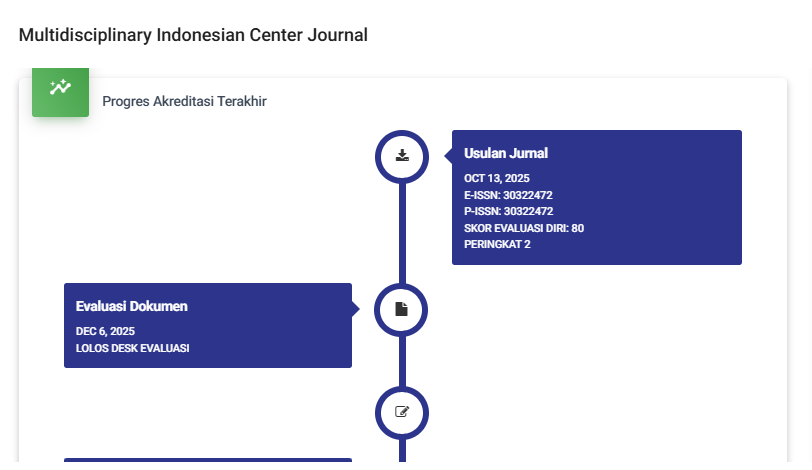ISLAMIC LAW ANALYSIS ON PARENTS' RESPONSIBILITIES TOWARDS CHILDREN WITH DISABILITIES (CASE STUDY IN KISARAN BARAT DISTRICT, ASAHAN REGENCY)
DOI:
https://doi.org/10.62567/micjo.v2i3.832Keywords:
Parental Responsibility, Children with Disabilities, Child WelfareAbstract
Parental responsibility towards children with disabilities in Islamic legal analysis emphasizes the principles of compassion, justice and protection of every individual, including those with special needs. In Islam, children, including children with disabilities, are considered as a mandate given by Allah SWT to parents. Therefore, parents have a great responsibility in caring for, protecting and guiding their children comprehensively, including physical, mental and spiritual aspects. The focus of research in writing this thesis is the responsibility of parents towards children with special needs. The purpose of the study is to analyze and understand the perspective of Islamic law on parental responsibility towards children with disabilities comprehensively in Kisaran Barat District, Asahan Regency. This method uses a qualitative research method which is a process of various steps involving researchers, theoretical and interpretative paradigms, research strategies, data collection methods and empirical data analysis as well as the development of interpretations and presentation of research results. Children with disabilities have physical limitations, hearing limitations, vision limitations, intellectual limitations, emotional behavioral limitations and communication limitations. Islamic law teaches that parents must provide affection and fair treatment without discriminating between children with special needs and children without, and requires parents to seek education and life skills that will enable children with disabilities to participate well in society. In an effort to meet their needs, Islam also allows parents to seek professional help, such as therapy or health services, to support their child's development.
Downloads
References
Dian Haerunisa. 2015. “Pemenuhan Kebutuhan Dasar Anak Oleh Panti Sosial Asuhan Anak (Psaa)”, Prosiding Penelitian Dan Pengabdian Kepada Masyarakat.
Muktiali Jarbi. 2021. Tanggungjawab Orang Tua Terhadap Pendidikan Anak. PENDAIS : Jurnal Pendidikan Dan Wawasan Keislaman.
Muhammad bin Ismail Al-Bukhari. 2003. Shahih Bukhari (e-Book Version), Muhammad ibn al-Husayn al-Bayhaqi, Shu'ab al-Iman, ed. Abdul Ali Abdul Hamid. Riyadh: Maktabat al-Rushd.
Rahmatika, L. 2020 Inklusi Sosial bagi Penyandang Disabilitas di Indonesia. Yogyakarta: Pustaka.
Regulation of the Minister of Social Affairs of the Republic of Indonesia Number 13 of 2015. Concerning Guidelines for Handling Persons with Disabilities, State Gazette of the Republic of Indonesia.
Vani et al., 2017. Pemberdayaan Penyandang Disabilitas dalam Perspektif Pembangunan Inklusif. Jakarta: Kementerian Sosial RI.
Peter L. Berger dalam M. Zai. 2021. Studi Tentang Aksesibilitas dan Partisipasi Difabel dalam Pendidikan. Jakarta: Prenadamedia Group.
Masita Rahman. https://www.academia.edu/19637294/ “Pengertian Tanggung Jawab”. 10 November 2021. 12:40 WIB.
Samrotul Fikriyah, Annisa Mayasari, Ulfah, and Opan Arifudin, “The Role of Parents in the Formation of Children's Character in Responding to Bullying”, Tahsinia Journal 3, no. 1 (April 2022): 11–19, https://doi.org/10.57171/jt.v3i1.306.
Downloads
Published
How to Cite
Issue
Section
License
Copyright (c) 2025 Nilasari Siagian; Surono Zamroni; Putri Ananda

This work is licensed under a Creative Commons Attribution-ShareAlike 4.0 International License.



























